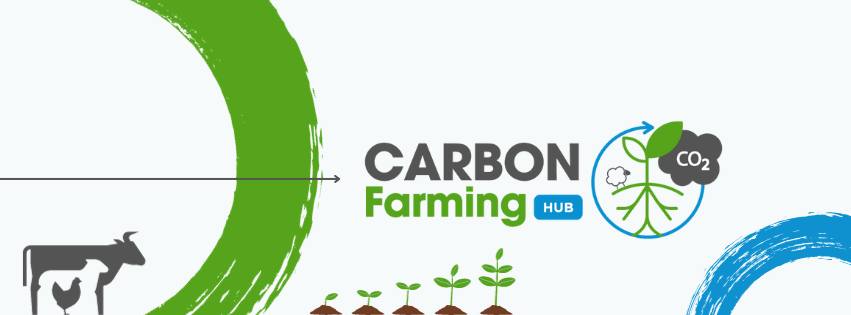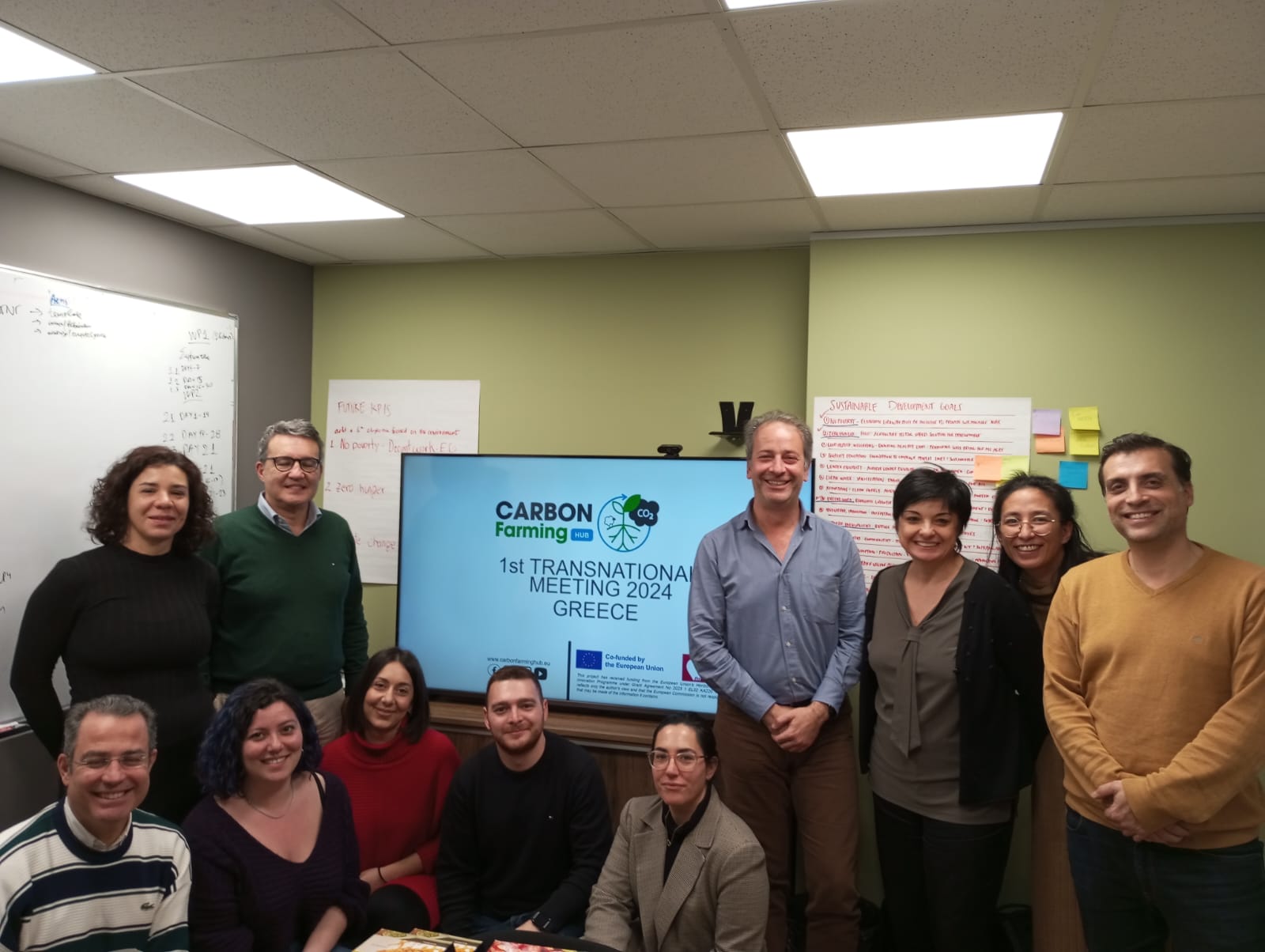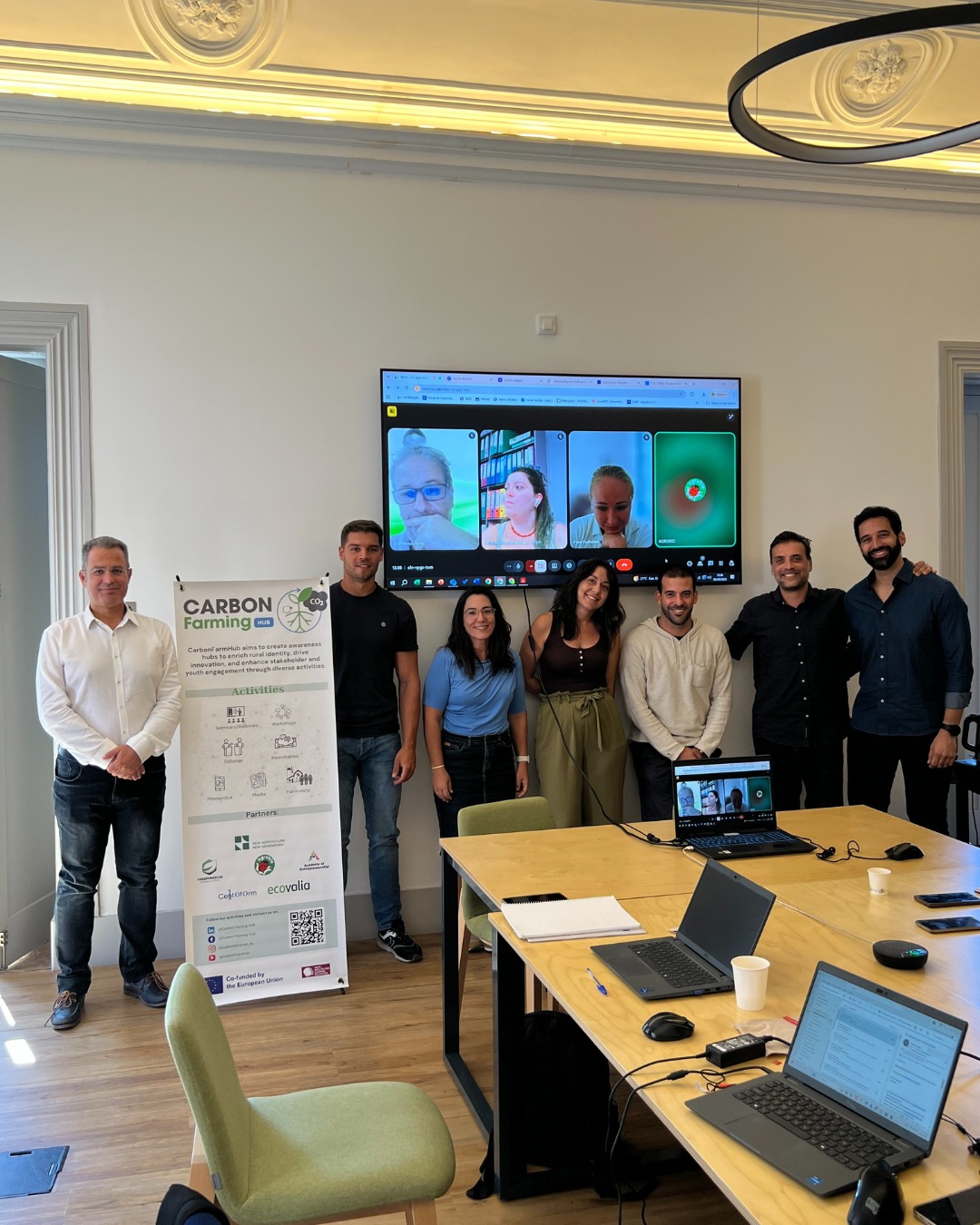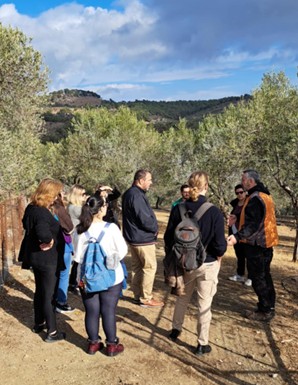CarboFarmHub concludes
Building the foundations for Europe’s carbon farming future
Μπορείς να διαβάσεις την Ελληνική έκδοση αυτού του άρθρου εδώ.

The Carbon Farming Awareness Hub (CarboFarmHub) has officially concluded after two years of collaborative work across Europe to raise awareness, strengthen knowledge, and promote innovative practices in carbon farming — an increasingly vital approach for achieving climate neutrality and sustainable food systems.
On September 9–10, 2025, the project consortium met in Lisbon, Portugal, for the final transnational meeting, hosted by AGROBIO. Representatives from all partner organisations — New Agriculture New Generation (NEAGEN), Theophrastus Research Institute, and Academy of Entrepreneurship (AKEP) from Greece; Centoform from Italy; AGROBIO from Portugal; and ECOVALIA from Spain — came together to review the project’s achievements, final outputs, and long-term legacy.

Co-funded by the European Commission under the Erasmus+ Programme, CarboFarmHub was designed to empower young farmers, students, and citizens to better understand the links between agriculture, climate change, and innovation, creating a space for knowledge exchange between science, practice, and policy.
A milestone in sustainable collaboration
During the final meeting in Lisbon, partners finalized the project’s main outputs and discussed the publication of the CarboFarmHub Policy Brief, soon to be released in its definitive version. This document synthesizes the project’s main findings and offers strategic recommendations for European and national policymakers to foster the adoption of carbon farming practices across diverse agricultural systems. The policy brief highlights the potential of organic and regenerative farming, carbon certification systems, and peer-to-peer knowledge exchange as fundamental tools for achieving the EU Green Deal and the Farm to Fork Strategy objectives.


Key results and achievements
Throughout its implementation, CarboFarmHub has built a vibrant network connecting farmers, vocational students, researchers, and public authorities.
Across the four participating countries, the project organised more than 10 hybrid and in-person events, each gathering an average of 50 participants, promoting open dialogues on how agriculture can reduce its environmental impact while maintaining productivity and profitability.
The project’s cornerstone achievement is the creation of the Global Framework of Initiatives, a structured portfolio of awareness-raising and educational actions implemented both locally and internationally. This framework includes more than 15 concrete activities — such as webinars, podcasts, roundtables, surveys, field visits, and MOOC courses — that have helped make complex topics like carbon sequestration, soil health, and sustainable land management more understandable and actionable for farmers and the general public.
All educational resources and recorded sessions are now available through the CarboFarmHub YouTube channel and on the project’s online learning platform, the Cultivate Academy.
Both virtual exchange spaces provide open access to training materials, studies, research outputs, and EU policy documents, offering a long-term repository for anyone interested in green innovation and sustainable agriculture.
Looking ahead: a legacy for European agriculture
The CarboFarmHub Policy Brief, co-created by young participants and key stakeholders from the partner countries, encapsulates the project’s vision for the future of European agriculture. It calls for supportive policy frameworks, financial incentives, and technical assistance to make carbon farming an achievable goal for all farmers — from small family farms to larger operations.
Beyond its immediate outcomes, CarboFarmHub has laid the groundwork for future cooperation between educational institutions, NGOs, and agricultural networks. Its participatory approach has proven effective in bridging the gap between research, policy, and field practice, and in equipping new generations of farmers with the tools needed to face the challenges of climate change.
As the project concludes, partners agree that CarboFarmHub is not an end, but a beginning. Its results will continue to inspire upcoming European initiatives under the Horizon Europe and Erasmus+ programmes, which aim to expand the use of carbon farming and reinforce the transition toward climate-resilient and low-emission food systems.
Projects like CarboFarmHub demonstrate that sustainability, innovation, and collaboration can go hand in hand, empowering farmers, engaging young ones, and transforming the agricultural sector into a cornerstone of Europe’s green transition.
For more information:

CarboFarmHub is co-funded by the European Union. Views and opinions expressed are however those of the author(s) only and do not necessarily reflect those of the European Union. Neither the European Union nor the granting authority can be held responsible for them.

